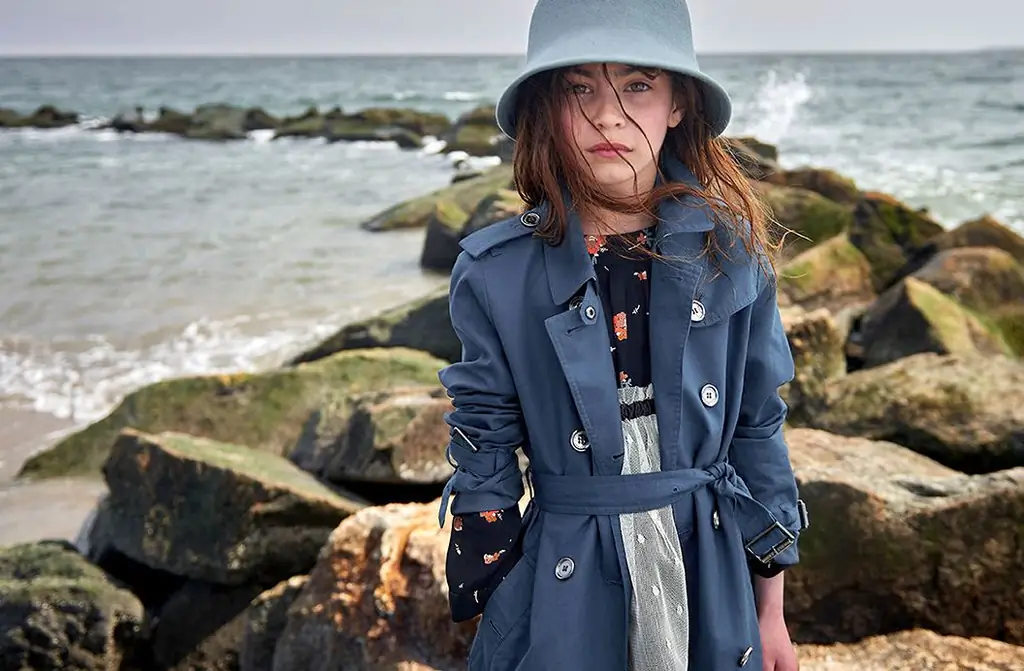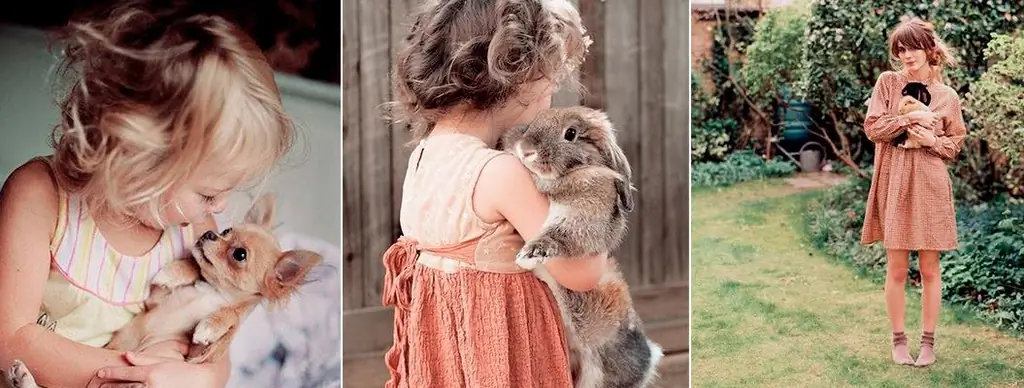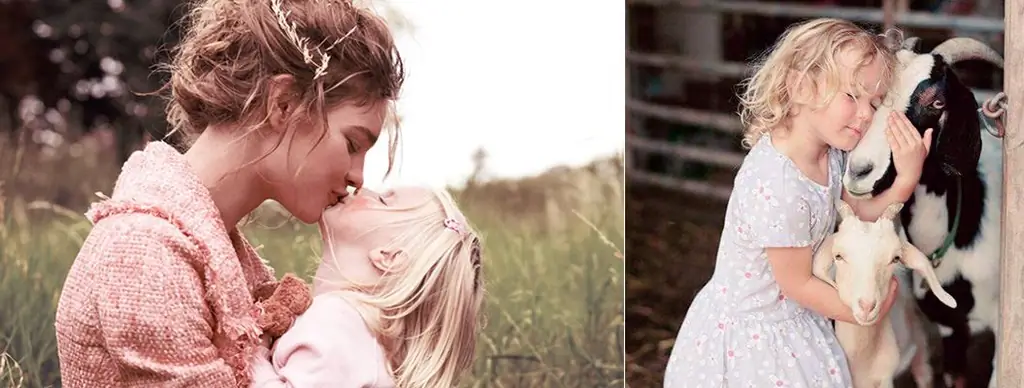- Author Adrian Jeff jeff@psychologosportal.com.
- Public 2023-12-17 05:06.
- Last modified 2025-01-24 14:09.

The child wants a dog - why not have a pet?
“After all, you, dad, have a mom. And you, mom, have a daddy. And I have no one. Nobody. Even dogs. In one phrase, the Kid from the cartoon about Carlson expresses exactly what he really lacks.
The child asks to have a pet. Dog, kitty, parrot, hamster - choose your option. You yourself may not be against it (you have already broken down under the onslaught of all the strength of the child's desire), but few people know what the child himself is at risk of. His eyesight may deteriorate, he may never learn to sufficiently interact with other people …
- What nonsense ?!
Vector systems psychology explains how and under what circumstances this can happen.
What does a child who dreams of a dog really need?
It's all about the delicate mental structure of children, who most often ask to have a pet.
“After all, you, dad, have a mom. And you, mom, have a daddy. And I have no one. Nobody. Even dogs. In one phrase, the Kid from the cartoon about Carlson expresses exactly what he really lacks. Care and attention, someone's involvement in his life, love not for exemplary behavior, but just like that, because he is. Is it only a dog that can give a child these feelings?
The system-vector psychology of Yuri Burlan defines the basic need of a child as a feeling of safety and protection from parents. Children with a visual vector, who are naturally hungry for feelings, also need to feel a powerful emotional message from their parents. Without warmth, the whole world seems to them gray, bleak and prickly. In such a world, the baby is sad and lonely. And then the child imagines an affectionate fluffy friend who would always play and be happy with him. He wants to share his feelings with someone. The question is - with whom?
Human or dog?
A person gets the greatest happiness only in conjunction with another person. But also the biggest misfortune. In order for contact with people to bring joy to the child, and not resentment and irritation, it is necessary to develop interaction skills in him.
There is an opinion that pets teach children responsibility and care. Perhaps at some scanty level. But this is not enough for the happy adaptation of the child among other people. When a dog appears and the child becomes attached to it, the lack of sensual fulfillment is dulled, he is already, as it were, satisfied. He will be less eager to contact people if his dog becomes his best friend. How many examples of unhappy lonely people in the company of ten cats or one faithful dog we see among adults!

What do we want for children - happy realization in the circle of other people or vegetation surrounded by cats and dogs? The bar must be set high right away, otherwise, having received a little pleasure from the pleasant and not requiring special emotional contact with the dog, the child will lose the motivation to strive for more.
From the desire to create connections with other people, make friends, talk heart to heart, share something important, the child will have thoughts on how to establish contact, how to maintain a conversation, how to become needed in a team. From this tension and anticipation of something pleasant, the child will learn to be involved in communication with words, emotions, meaning. This skill will be useful to him at all times.
Big loss for a small heart
Imagine that a dog, cat, or hamster still lives in a house. The child's world is closed on the pet. He plays with him, cares, feeds, they even sleep together. But suddenly the dog was hit by a car, or the disease suddenly knocked the animal down. For the owner of a visual vector of any age, the death of a loved one is the worst thing that can be. The loss of a loved one is a tragedy.
A fragile child's psyche is forced, as best it can, to defend itself against a blow to the patient himself. The most sensitive area reacts to overstress. For the owners of the visual vector, these are the eyes. The child triggers an unconscious reaction to the breakdown of the emotional connection with his beloved animal: his eyesight falls - as a way to reduce the connection with the world, which causes suffering and pain.
At the Yuri Burlan's Systemic Vector Psychology training, many realized their childhood traumas and were able to restore or improve their vision:
"My eyesight improved after passing the PU from -3.5 to -2.75"
“Eyesight has improved. There is no longer a need to switch to glasses"
“I didn't expect my vision to improve by 0.5 diopters! I have not - 3.5, but already -3!"
“Almost two years ago I wrote about my vision improvement result. Today the result was confirmed seriously: -6.5 turned into -5"
But is it worth putting your child at such a risk, knowing the possible consequences?
If a child's desire to have a pet does not go away, you can make friends at the zoo with an elephant or any other pet and visit him regularly. This will give the child temporary satisfaction. But the emphasis in its development should still be directed to something else.

Happiness is in other people
Actually, I would much rather have a dog than a wife.
Kid and Carlson
The owners of the visual vector are created to love people and keep the human species from hostility. This is what brings them maximum pleasure. And we, having burned ourselves with people, create emotional ties with cats and dogs. This narrows the range of possible happiness from life to the minimum.
Parents are able to give their child the skill to be happy with other people by educating his feelings. Reading classical literature gives a child (any and especially a visual one) the skills necessary for a happy life: to fantasize and compassion for others.
The list of books for the development of sensuality recommended by Yuri Burlan can be found here.
To avoid tragic mistakes, to give your child an enveloping sense of security and safety and the maximum chance for a happy realization in the future, the training System-vector psychology by Yuri Burlan will allow.






